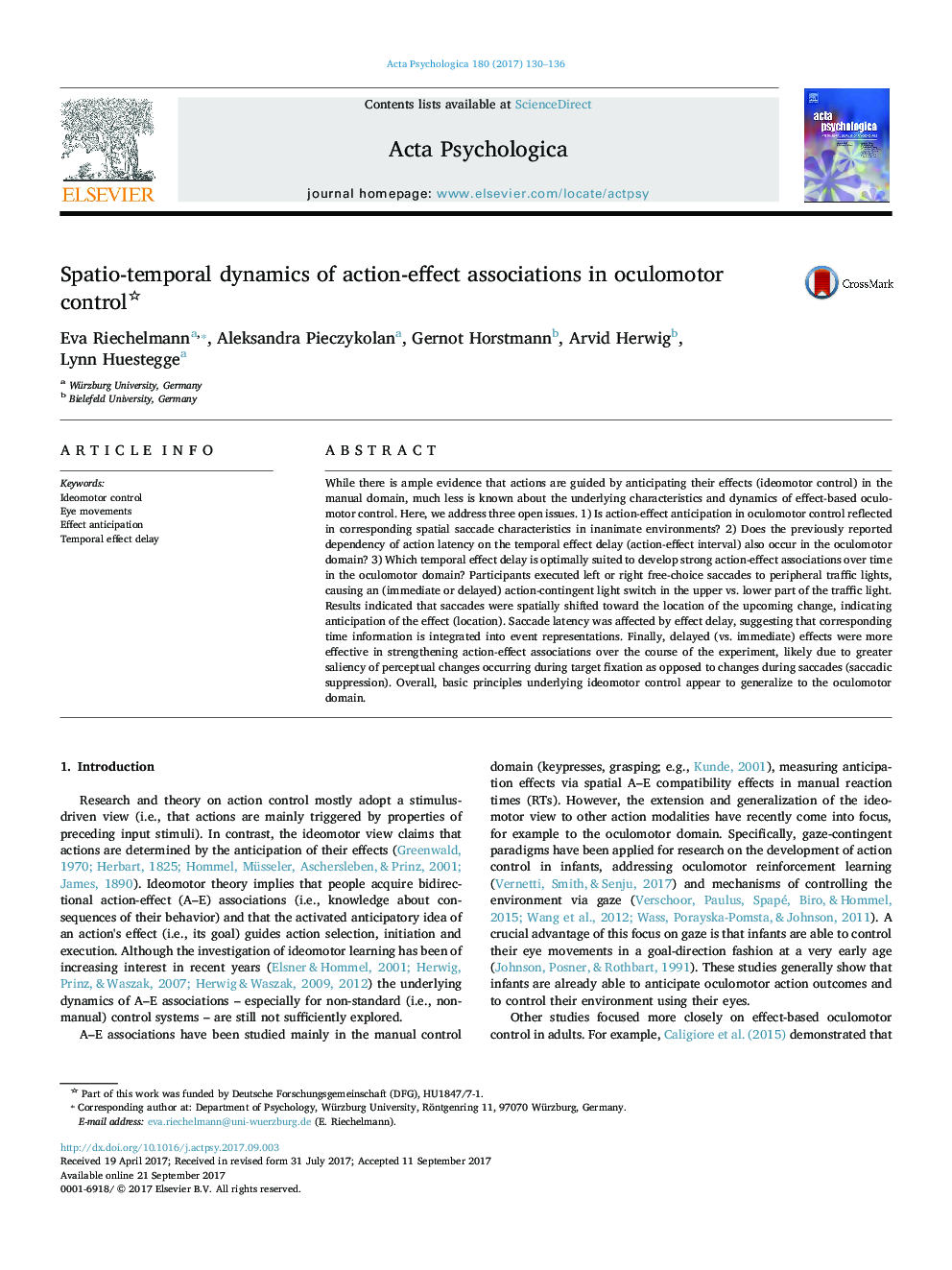| کد مقاله | کد نشریه | سال انتشار | مقاله انگلیسی | نسخه تمام متن |
|---|---|---|---|---|
| 5040190 | 1473578 | 2017 | 7 صفحه PDF | دانلود رایگان |
- Oculomotor actions are guided by anticipating their effects (ideomotor control).
- Anticipation is reflected in spatial saccade characteristics in inanimate settings.
- Temporal action effect delay affects oculomotor latencies.
- Action-effect learning benefits from delayed (vs. immediate) action effects.
While there is ample evidence that actions are guided by anticipating their effects (ideomotor control) in the manual domain, much less is known about the underlying characteristics and dynamics of effect-based oculomotor control. Here, we address three open issues. 1) Is action-effect anticipation in oculomotor control reflected in corresponding spatial saccade characteristics in inanimate environments? 2) Does the previously reported dependency of action latency on the temporal effect delay (action-effect interval) also occur in the oculomotor domain? 3) Which temporal effect delay is optimally suited to develop strong action-effect associations over time in the oculomotor domain? Participants executed left or right free-choice saccades to peripheral traffic lights, causing an (immediate or delayed) action-contingent light switch in the upper vs. lower part of the traffic light. Results indicated that saccades were spatially shifted toward the location of the upcoming change, indicating anticipation of the effect (location). Saccade latency was affected by effect delay, suggesting that corresponding time information is integrated into event representations. Finally, delayed (vs. immediate) effects were more effective in strengthening action-effect associations over the course of the experiment, likely due to greater saliency of perceptual changes occurring during target fixation as opposed to changes during saccades (saccadic suppression). Overall, basic principles underlying ideomotor control appear to generalize to the oculomotor domain.
Journal: Acta Psychologica - Volume 180, October 2017, Pages 130-136
